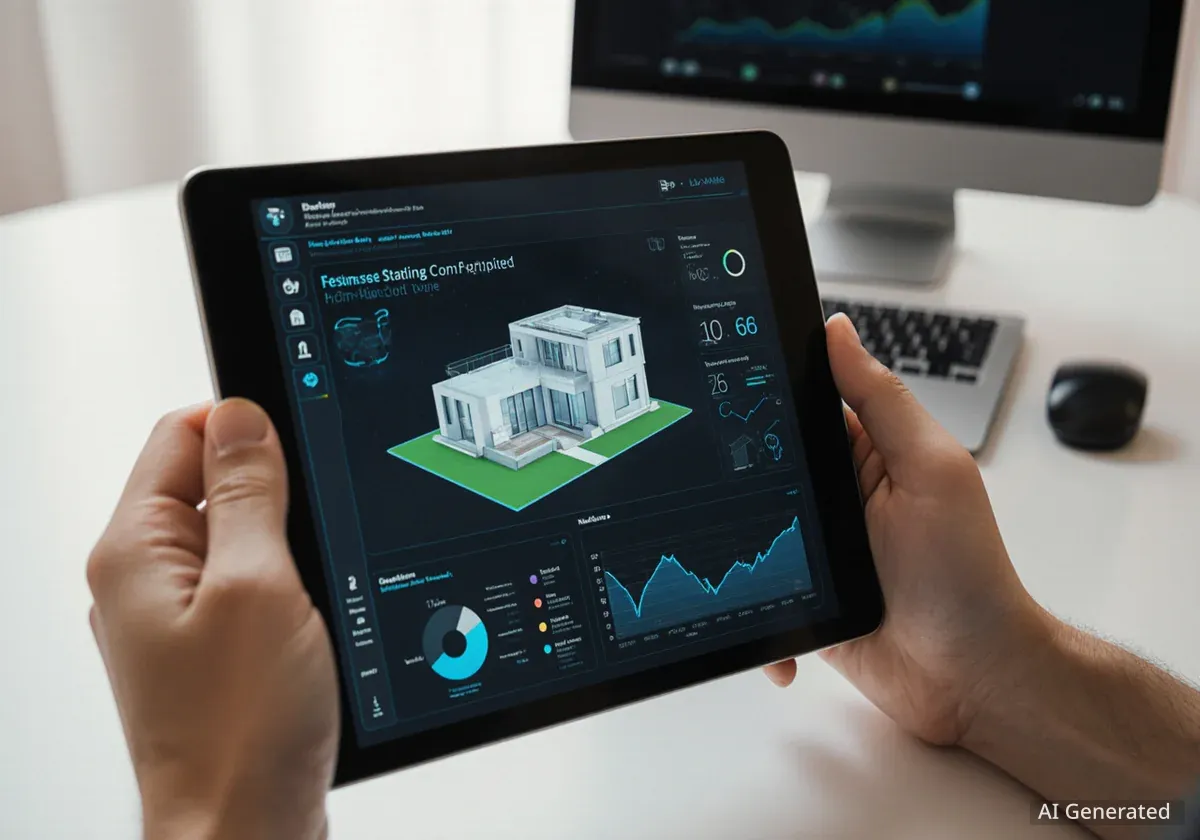A real estate investment company is introducing a new way for individuals to trade property shares, aiming to create a liquid market similar to trading stocks. Arrived, a platform that enables fractional ownership of rental homes, has secured $27 million in new funding to launch a secondary marketplace where investors can buy and sell their shares in minutes.
This development comes as traditional homeownership becomes increasingly difficult for many, and it seeks to provide a more accessible entry point into the real estate market. The platform allows investments starting as low as $100, opening up property investment to a much broader audience.
Key Takeaways
- Arrived secured $27 million in new funding to launch a secondary trading market for real estate shares.
- The new platform allows investors to buy and sell shares of individual rental properties from each other.
- Since its 2021 launch, Arrived has attracted over 850,000 investors who have collectively invested more than $330 million.
- The company's model, approved by the SEC, allows both accredited and non-accredited investors to participate with a minimum of $100.
Democratizing Real Estate Investment
The concept of owning a piece of a rental property without buying the whole building is gaining significant traction. Arrived, which started in 2021, has built a business on this model of fractional ownership. The company purchases single-family homes, places them into a legal structure, and then offers shares to investors through its online platform.
Investors can build a personalized portfolio of properties across various cities, earning passive income from rent and potential appreciation in property value. According to Ryan Frazier, co-founder and CEO of Arrived, the company worked extensively with the Securities and Exchange Commission (SEC) to create a framework that is accessible to everyone.
“We spent about a year working with the SEC to create this framework within the regulation so that both accredited and non-accredited investors can participate,” Frazier explained. This regulatory approval is crucial, as it distinguishes the platform from many other real estate investments that are limited to high-net-worth individuals.
Unbundling the Traditional REIT
While Real Estate Investment Trusts (REITs) have long offered a way to invest in a portfolio of properties, Arrived offers a more granular approach. Frazier describes the model as “unbundling” the REIT, allowing investors to choose specific individual properties rather than buying into a large, pre-selected fund.
This level of control has proven popular. Some properties on the platform have more than a thousand individual investors. To date, Arrived has acquired roughly 500 properties across 65 cities and has been doubling its property count annually.
What is Fractional Ownership?
Fractional ownership divides a single asset, like a rental home, into multiple equity shares. Each investor owns a percentage of the property and is entitled to a proportional share of any rental income and appreciation. Arrived manages the properties, handling tenants, maintenance, and administrative tasks, making it a passive investment for shareholders.
The New Secondary Marketplace
The most significant new development is the launch of a secondary marketplace, fueled by the recent $27 million funding round. Previously, investors had limited options to sell their shares. This new feature introduces liquidity, a key element of public stock markets, to the platform.
“Now investors can buy and sell shares from each other on Arrived,” Frazier stated. This allows investors to exit their positions or acquire more shares in properties they favor without waiting for a long-term property sale. It provides flexibility to rebalance portfolios and realize gains from appreciation more quickly.
The early response has been strong. In the first three weeks of operation, investors submitted 57,000 buy and sell orders on the marketplace, signaling high demand for this kind of liquidity.
“I think it’s exciting, because we’re really bringing this liquidity to the real estate market that I think facilitates real estate investing just moving online.”
Major Backing and Market Context
The new funding round was led by Neo, a venture capital fund and mentorship community. The firm's CEO, Ali Partovi, expressed strong confidence in the company's mission.
“The Arrived team is cracked, and I love the audacity of their vision: a stock market for real estate,” Partovi said in a statement. “I’m betting on them to democratize and digitize access to America’s $50 trillion in residential real estate.”
Other prominent investors include Bezos Expeditions, Forerunner Ventures, and Core. The company also has backing from notable tech executives like Salesforce CEO Marc Benioff and Uber CEO Dara Khosrowshahi. This latest round brings Arrived's total funding to $61.7 million.
Arrived by the Numbers
- Total Funding: $61.7 million
- Total Investment on Platform: Over $330 million
- Number of Investors: More than 850,000
- Property Portfolio: Approximately 500 homes in 65 cities
- Minimum Investment: $100
Navigating a Challenging Housing Market
This innovation arrives at a time when the traditional U.S. housing market is facing headwinds. High home prices and elevated interest rates have sidelined many potential homebuyers and made it more expensive for individual investors to acquire rental properties.
While investors currently make up a record-high share of homebuyers, this is largely because the pool of traditional owner-occupant buyers has shrunk. To mitigate risks associated with market volatility, Arrived has adopted a cautious strategy.
Frazier noted that the company is highly selective about the markets it enters and has minimized its use of long-term debt. He said the majority of properties on the platform are owned with 100% equity by investors. For the properties that do carry a mortgage, the average interest rate is below 4%, insulating them from recent rate hikes.
By providing a low-cost, liquid way to invest in residential real estate, Arrived is positioning itself as an alternative for those looking to gain exposure to the property market without the high capital requirements and long-term commitment of direct ownership.





